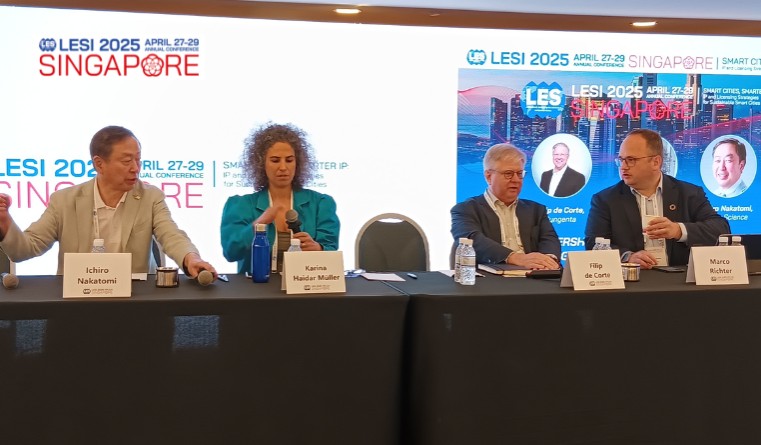LESI 2025: IP, innovation and collaboration in green tech
29 April 2025

Sustainability, climate change and environmental, societal and governance (ESG) principles have recently taken centre stage in global discussions and business strategies, driving a significant shift towards responsible and environmentally conscious practices.
At the Licensing Executive Society International (LESI) 2025 Annual Conference held at Suntec Singapore Convention and Exhibition Centre April 27-29, 2025, the issues on such practices have bolstered the unique perspectives emerging from Asia, the evolving mindset towards technology in Europe and the necessity of robust frameworks to drive impactful change.
According to Filip de Corte, head IP crop protection at Syngenta, a leading patent attorney based in Switzerland, the UK, the U.S., the Netherlands and China. There is a crucial link between IP and investment in green technologies. He said: “While Europe may have experienced a period of disillusionment regarding purely technological solutions, there’s a renewed understanding of the vital role technology plays, particularly when coupled with strategic intellectual property management. The focus is shifting towards leveraging innovative technologies to actively address challenges like climate change. This highlights the fundamental importance of safeguarding ingenuity to drive meaningful progress.”
Meanwhile, Karina Haidar Müller, a partner at Müller Mazzonetto in São Paulo, highlighted a pivotal moment in sustainability with the 1992 Brazil conference, noting it sparked a global shift. While acknowledging progress, she urged faster action through private initiatives, stating: “How we move slow, we need private initiatives to become faster.”
She emphasized the importance of government-private sector collaboration and innovative, multi-stakeholder governance, exemplified by initiatives to restore natural forests. Müller also advocated for mediation to resolve sustainability disputes efficiently, saying: “We need to use mediation because we can’t afford to have many disputes.” Finally, she pointed to a growing awareness among corporate leaders of the link between intangible assets, like IP rights, and sustainability, with a focus on leveraging technology for more sustainable business practices.
Ichiro Nakatomi, president at Avida Science, highlighted a significant economic opportunity within sustainability, questioning how many of the “global 21,000 public companies” his organization identified are currently incurring unnecessary expenses through waste. “Understanding and recovering value from this waste is crucial for these companies to achieve market growth,” he said.
The discussions underscored the multifaceted nature of the global green transition, emphasizing that achieving net-zero emissions by 2050 requires not only technological advancements and robust IP protection but also strong collaborative frameworks and a shared global commitment.
- Excel V. Dyquiangco, reporting from Singapore






